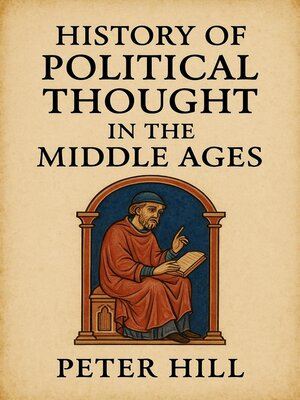
Sign up to save your library
With an OverDrive account, you can save your favorite libraries for at-a-glance information about availability. Find out more about OverDrive accounts.
Find this title in Libby, the library reading app by OverDrive.



Search for a digital library with this title
Title found at these libraries:
| Library Name | Distance |
|---|---|
| Loading... |
History of Political Thought in the Middle Ages offers a riveting intellectual journey through one of history's most misunderstood periods—revealing how the political ideas we take for granted today were forged in the crucible of medieval Europe. Far from the "Dark Ages" of popular imagination, this groundbreaking book illuminates the rich, sophisticated political theories developed between the fall of Rome and the dawn of the Renaissance.
Drawing on previously overlooked sources and offering fresh interpretations of classic texts, this book reveals medieval thinkers as they truly were: brilliant, pragmatic, and revolutionary minds wrestling with timeless questions about power, justice, and governance. Readers will discover how the foundations of modern concepts—from constitutionalism and consent to sovereignty and resistance—were established centuries before Locke, Hobbes, or Rousseau.
From Augustine's City of God to Machiavelli's Prince, this compelling narrative traces the evolution of political thought through pivotal moments of crisis and innovation:
History of Political Thought in the Middle Ages challenges conventional wisdom about the medieval world, revealing a vibrant intellectual landscape where Byzantine emperors, Islamic philosophers, Jewish scholars, canon lawyers, university professors, and even ordinary citizens debated the nature of legitimate authority.
Written with both scholarly precision and narrative flair, this book will appeal to readers fascinated by the history of ideas, political philosophy, religious history, and anyone seeking deeper understanding of how our modern political concepts truly originated. It offers essential insight for our own age of political transformation, showing how societies have navigated the perennial tension between transcendent principles and pragmatic governance—between God and the Prince.







